keepmoving
About Martina
Profile
Blog
Photos
Videos
- recent updates
- recent comments
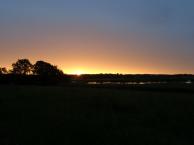
New blog entry posted
Kiel, Germany
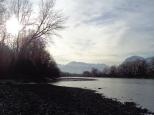
New blog entry posted
Innsbruck, Austria
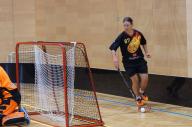
New blog entry posted
Innsbruck, Austria
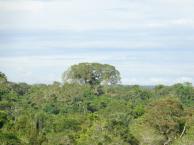
Album updated
Coca, Ecuador
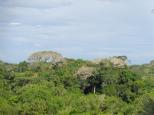
New blog entry posted
Coca, Ecuador
Hugo Oliveira “namely that science is the answer to every problem you might ever encounter, is just wrong.” – very very few scientists believe that. That tends to be more of an attitude in engineers, really. “It seems that in psychology, more than in any other scientific field, a large number of (contradicting) truths can happily exist next to each other and nobody cares.” – well, check out Economics. Economics (at least the neoclassical school, which is practically the only school of economics taught and practiced) has the same capacity of predicting future events as astrology, it tries to disguise the inability of predicting something as complex as societies with baroque and useless mathematical models (no other social science has that hubris) and yet it is heralded and considered by society and governments as supreme truth. Much more than science! To be fair, ecology sometimes does that too, but with the fundamental difference that in ecology, most of the time, the scientist is not observing and participating. The fact that a scientist says lack of habitat will lead to the decrease of a bird species population will not result in the bird changing its behavior. When an economist says based on present values of certain variables and a model that a crash will happen, that will lead to a change of behavior in people thus changing the values of given variables and even the validity of the model.
re: About Karl Popper, science and climate changeHugo Oliveira Argh... how do you edit the posts??!!
re: About Karl Popper, science and climate changeHugo Oliveira “namely that science is the answer to every problem you might ever encounter, is just wrong.” – very very few scientists believe that. That tends to be more of an attitude in engineers, really. “It seems that in psychology, more than in any other scientific field, a large number of (contradicting) truths can happily exist next to each other and nobody cares.” – well, check out Economics. Economics (at least the neoclassical school, which is practically the only school of economics taught and practiced) has the same capacity of predicting future events as astrology, it tries to disguise the inability of predicting something as complex as societies with baroque and useless mathematical models (no other social science has that hubris) and yet it is heralded and considered by society and governments as supreme truth. Much more than science! To be fair, ecology sometimes does that too, but with the fundamental difference that in ecology, most of the time, the scientist is not observing and participating. The fact that a scientist says lack of habitat will lead to the decrease of a bird species population will not result in the bird changing its behavior. When an economist says based on present values of certain variables and a model that a crash will happen, that will lead to a change of behavior in people thus changing the values of given variables and even the validity of the model. “So we come up with ridiculous ways to put numbers on things like feelings which, in my opinion, is the same as putting costs (or benefits) on nature: it is denying the real, intrinsic value.” – Most sciences do not put “numbers” as such. Evolution is one of science’s most successful theories and yet no one tries to put numbers on species evolution or predict when species x will become species y. The same is true of most cell biology where the effect of genes or proteins is described in more qualitative than quantitative ways. Although the labelling is a bit absurd, the higher or lower reliance on numbers is what separates the “hard” from the “soft” sciences. “Scientists, however, over the past decades, have come up with a great way to make sure that science is viewed as the only way to learn about truth: they convinced everybody that "truth" equals the result of scientific research.” – that is false! Most scientists are quite happy to acknowledge that philosophy is on a higher level than science. Some are philosophers themselves. Others recognize that science deals with the material world and that subjective impressions such as emotions, feelings, beauty, religious faith, etc, are beyond the scope of science. Some scientists are religious and other are imbued of a deep rational spirituality that they consider emanating from science but not to be science (p. ex.: Carl Sagan, Carlo Rovelli, David Attenborough). “Scientists have achieved a status in society that allows them to do almost everything in the name of science.” – the problem is quite the opposite. Science has lost its epistemological value and society less and less values science. Back in the day, governments used to listen to scientists advise. Now, look at Trump, Bolsonaro and all the other populist authoritarians we have today and the people who voted for them. Climate change?! Scientists must deal with people thinking vaccines cause autism and the Earth is flat!!! Before that they had been dealing with creationists and people who do homeopathy. Anti-science is not a new phenomenon but it’s getting much much worse. Just like people go to see a medical doctor thinking they know what they have because they went to Dr. Google first, scientists must deal with a huge lack of confidence on science because people read all sorts of s*** in the internet. And if most scientists are quite happy to see society not accepting its authority unquestioningly (good scientists never liked to be priests), it’s despairing when someone asks you after a public talk (like I had happening to me) “So, do you think if we inject ourselves with plants extracts we can do photosynthesis? I read on the internet there’s a scientist in CERN who believes it is possible. That’s quite exciting isn’t it?”. What do you answer to this? How do you engage with this level of ignorance? “A scientific theory was simply that: a theory that was by then not been proven wrong. And ideally a starting point for further research in order to come up with a better theory. It seems that the debate about climate change is the first incident in several decades, where scientists actually have to deal with criticism. nd it makes me feel ashamed to be a scientist when I see how they handle it. Because for the past ten years or so, literally all scientists have done to counter criticism on their research (or the conclusions they draw from their research) is to point again and again and yet again at the fact that this is scientific research and because it is science it weighs more than any other type of knowledge. And if you don't believe in scientific facts then you are ignorant and shouldn't be allowed to voice your concerns. “ – It’s not just climate change. How do you counter anti-vaccine movement? How do you as a scientist that KNOWS as a fact that vaccines save lives of children because all the best available evidence and hypothesis that have been tested and tried over and over again deal with people saying “Oh, you know, vaccines being effective it’s just a theory that hasn’t been proven wrong. The fact is that we don’t know for sure they don’t cause autism. I think scientists should be more humble. Also they’re all in cohort with the greedy pharma industry. I read on several websites about loads of evidence that vaccines cause autism and the companies hide that so I’m not vaccinating my children and will tell everyone not to do the same. And if you tell me I’m wrong, Mr. Scientist, you are just being arrogant.”. And what about “flat-earthers”? The fact is that climate-change denialism, anti-vaxxers, flat-earth, etc, all come from the same source. Science has been so effective in solving so many problems (though not all, of course: social problems like racism and inequality continue to be beyond the scope of science) that people take it for granted. Also, individualism in capitalist societies has gone so far that people confuse “democracy” and “free-speech” with “although I never read a book in my life, this is a democracy and no scientist knows more than I do, my opinion is as valid as the opinion of someone who spent a whole career looking at something… freeeeedooooom”. As for the mentioning of Karl Popper in the title of your post… the two climate-change denialists I had the displeasure of engaging in conversation with (both were scientists, one of them - incredibly - working on how climate affects plants) quoted Popper and falsificationism as if it was a valid argument (it’s not). Also, both were quite prone to conspiracy theories and had a “Galileo Complex” (everyone thought Galileo was crazy and turned out he was right, so you think I’m crazy now but you will see better when I’m heralded as a genius). Kuhn, Lakatos Feyerhabend, Thagard, Bunge… all these philosophers of science have reflected on Popper’s theories, found inconsistencies and limitations and superseded it (well, as much as philosophers can be superseded). Falsifacionism sounds very appealing but it has its flaws and it’s a long stretch to bring it to the climate change debate. “So why do scientists spend so much time and energy telling critics that "this is science, stupid" instead of actually finding other ways to make their point? If you ask me there are only two possible answers. (1) Industry is quite happy when people are spending all their time and energy discussing climate change because with the fear that this whole discourse causes a lot of money can be made. (2) Scientists are just vain and can't stand criticism, they always want to be right. In both cases, obviously, scientists aren't real scientists because if you are a real scientist criticism is part of your job “ – scientists are not vain. But imagine the despair of a physicist when someone is about to throw themselves from a 100th floor saying that science proves nothing and that they can fly because, I don’t know, moon’s gravity who is strong enough to cause tides will allow them to float. Understandably, the scientists is not going to go on a lesson on Newtonian physics, she is going to say “You’ll die, you f***ing moron!”. To which the guy will say “You scientists, always so arrogant!” and jump. Quite frankly, I think climate scientists are very patient and understanding towards society. I would have despaired long ago. “Because we pretend that everything can be reduced to numbers and models” – I’m not a fan of mathematical models of complex systems such as climate, weather, economies, etc, but the IPCC models strike me as very robust, tremendously supported by empirical evidence and constantly improved and updated. They also give quite a lot of leeway in their predictions. It’s the best evidence we have. You know, the spread of a flu epidemics or the organization of road systems is also based on models and no one questions that we use them to implement public health measures or schedule road lights to make traffic flow. But except for a few visionaries/deluded idiots (depends on your point of view) no one tries to reduce to numbers or models the progression of History or the enjoyment of a Beethoven concerto. “why don't we just be honest and admit that science is not fortune telling. “ – science is not fortune telling and never claimed to be, but it’s damn good at predicting most things. When you get on a airplane, science cannot tell you it won’t crash, it’s not fortune telling. But it tells you that given the normal circumstances you will safely fly to your destination. You disregard science advise at your own peril. “But if we allowed for feelings again and if scientists would admit that actually science is just one way out of many to come to a truth (…) do their jobs and do them properly and allow non-scientists to enter the debate in those fields where science might not hold the whole truth?” – the truth is a philosophically lidden concept. Science is something that works, has an inbuilt self-correction mechanism, and uniquely amongst other competing epistemological systems like faith, common-sense or “I read s*** on the internet” it does not claim to present the truth, only the best possible explanation given our best knowledge at the moment. Non-scientists are more than welcome to enter the debate. But imagine you as a football coach invite basketball players to advise you and they say “oh, I know a good strategy for your team to win, they should grab the ball with the hands and pass it around in the hair to the hands of other players!”, or “Hey, the other team has 11 players, why don’t you play with 30 in your team, surely you will win then, hu? It’s a democracy, when can play football the way we damn want! Freeeedooooom!”
re: About Karl Popper, science and climate changeEdeltraud Klingt doch ganz gut in meinen Ohren - sieht gut aus in meinen Augen! Auch dir schöne tage mit ausreichend Abwechslung aber ohne stress! Let,s see what happens next year! Lb. Gruss Edeltraud
re: Happy Winter SolsticeEdeltraud Because of racing through a lot of mails after two weeks absence, i löschte deine mail versehentlich. Dann dachte ich aber an den blog - and here i am. I understand very well what you classify as difference between tourist and traveller and learning to get closer to a country and its people. Lieben Gruss Edeltraud
re: Lessons in TravellingEdeltraud I especially liked the remark about the football fields next to church, building the center of villages there! Sounds like a well fitting area for you! So-enjoy the rest of your stay, maybe till we meet in Austria.
re: The Italian countrysideHuub Molenaar Dear Martina, as it was sometimes difficult (my English is not "perfect") I have read your messages always with much joy! And with my own experience (together with Carla) of a 1/2 year trip around the world (2006/2007) I think I understand what you have written in this message. We also couldn't mention exactly what was changed in our life but that we had a better feeling about it is for sure. Keep your experiences in your hart and be proud of yourself. You did it, followed your hart and that is what counts....!!! I wish you a happy new year and a lot of new fantastic experiences.
re: Happy yearHuub Molenaar I waited reading this beautifull story untill I had enough time for it. And it was really good to read this. It did remember me to the 1/2 year "worldtrip" that Carla and I made in 2006/2007. I think the best thing about these trip is: we/you did it! Be proud of yourself!! And I am looking forward to your next story. In the meantime we will talk about you on the HWC-volunteers-reunion on November 4. in A'dam with about 10 old collegues. Wish you all the best, enjoy and take care!! Big hugs, Huub
re: Looking backEdeltraud^ Ich habe keine Vergleiche, aber es sehr viel Text! Sehr detaillierte Beschreibungen von fast jedem Tag. Aber ich glaube, dass das eine gute Stütze für das eigene Erinnern ist. Und Freundinnen freuen sich bestimmt - so wie ich!
re: DenmarkEdeltraud sooo schöne Fotos vom Norden! Wurde richtig nostalgisch...
re: water bird count at the west coastEdeltraud jaaaa, ich weiß natürlich wovon du sprichst - Winter, cyclists, village life. kurz Northern Germany in winter. War nett zu lesen. Traffic als Hauptthema. Scheint dir trotzdem zu gefallen. Politische Entwicklung weltweit - lasse ich lieber. sind wir uns einig. Dir interessante, erfreuliche Ferien und ein gutes neues Jahr! Lieben Gruß aus den nackten Bergen.
re: Happy Winter SolsticeEdeltraud Hi Martina, Schön zu lesen, dass du dich da oben überwiegend wohl fühlst und deine Erfahrungen mit norddeutschen Menschen meine bestätigen - es gibt überall nette, aufgeschlossene. bezüglich der Argumente zu bezahlter vers. unbezahlter Arbeit - die werden wohl in der älteren Generation krasser sein. Ich hoffe, die Jugend wird eher hinter die Kulissen schauen lernen. Auf jeden Fall weiterhin gute Team Erfahrungen und frohes Gartenleben! Ich würde gern deine Umgebung sehen wenn ich den Bericht so lese, aber es wird sich im Herbst nicht ausgehen. Daher liebe Grüße aus Ischl! Edeltraud
re: Lies...Edeltraud Any place seems to be better then B.A.! Nice to notice your good mood, past and present. Looking forward to more of that..
re: BabiesEdeltraud my oh my - how lucky the birds safed you from getting desperate! Pity you didn,t mention the special one, maybe it,s to be seen at the photographs. And about making just a few friends - how would you manage if it has been a crowd of them? Having already so many around the globe! Enjoy the next time, but come again for a few days and let me know!
re: Life and Football- last visited
- travel plan
Martina has not added a travel plan yet


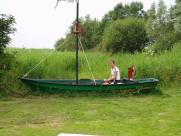

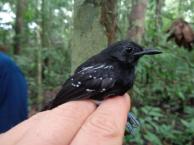
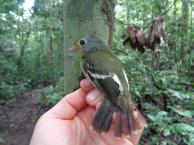


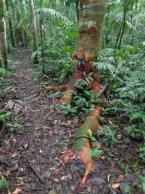
Hugo Oliveira “namely that science is the answer to every problem you might ever encounter, is just wrong.” – very very few scientists believe that. That tends to be more of an attitude in engineers, really. “It seems that in psychology, more than in any other scientific field, a large number of (contradicting) truths can happily exist next to each other and nobody cares.” – well, check out Economics. Economics (at least the neoclassical school, which is practically the only school of economics taught and practiced) has the same capacity of predicting future events as astrology, it tries to disguise the inability of predicting something as complex as societies with baroque and useless mathematical models (no other social science has that hubris) and yet it is heralded and considered by society and governments as supreme truth. Much more than science! To be fair, ecology sometimes does that too, but with the fundamental difference that in ecology, most of the time, the scientist is not observing and participating. The fact that a scientist says lack of habitat will lead to the decrease of a bird species population will not result in the bird changing its behavior. When an economist says based on present values of certain variables and a model that a crash will happen, that will lead to a change of behavior in people thus changing the values of given variables and even the validity of the model. “So we come up with ridiculous ways to put numbers on things like feelings which, in my opinion, is the same as putting costs (or benefits) on nature: it is denying the real, intrinsic value.” – Most sciences do not put “numbers” as such. Evolution is one of science’s most successful theories and yet no one tries to put numbers on species evolution or predict when species x will become species y. The same is true of most cell biology where the effect of genes or proteins is described in more qualitative than quantitative ways. Although the labelling is a bit absurd, the higher or lower reliance on numbers is what separates the “hard” from the “soft” sciences. “Scientists, however, over the past decades, have come up with a great way to make sure that science is viewed as the only way to learn about truth: they convinced everybody that "truth" equals the result of scientific research.” – that is false! Most scientists are quite happy to acknowledge that philosophy is on a higher level than science. Some are philosophers themselves. Others recognize that science deals with the material world and that subjective impressions such as emotions, feelings, beauty, religious faith, etc, are beyond the scope of science. Some scientists are religious and other are imbued of a deep rational spirituality that they consider emanating from science but not to be science (p. ex.: Carl Sagan, Carlo Rovelli, David Attenborough). “Scientists have achieved a status in society that allows them to do almost everything in the name of science.” – the problem is quite the opposite. Science has lost its epistemological value and society less and less values science. Back in the day, governments used to listen to scientists advise. Now, look at Trump, Bolsonaro and all the other populist authoritarians we have today and the people who voted for them. Climate change?! Scientists must deal with people thinking vaccines cause autism and the Earth is flat!!! Before that they had been dealing with creationists and people who do homeopathy. Anti-science is not a new phenomenon but it’s getting much much worse. Just like people go to see a medical doctor thinking they know what they have because they went to Dr. Google first, scientists must deal with a huge lack of confidence on science because people read all sorts of s*** in the internet. And if most scientists are quite happy to see society not accepting its authority unquestioningly (good scientists never liked to be priests), it’s despairing when someone asks you after a public talk (like I had happening to me) “So, do you think if we inject ourselves with plants extracts we can do photosynthesis? I read on the internet there’s a scientist in CERN who believes it is possible. That’s quite exciting isn’t it?”. What do you answer to this? How do you engage with this level of ignorance? “A scientific theory was simply that: a theory that was by then not been proven wrong. And ideally a starting point for further research in order to come up with a better theory. It seems that the debate about climate change is the first incident in several decades, where scientists actually have to deal with criticism. nd it makes me feel ashamed to be a scientist when I see how they handle it. Because for the past ten years or so, literally all scientists have done to counter criticism on their research (or the conclusions they draw from their research) is to point again and again and yet again at the fact that this is scientific research and because it is science it weighs more than any other type of knowledge. And if you don't believe in scientific facts then you are ignorant and shouldn't be allowed to voice your concerns. “ – It’s not just climate change. How do you counter anti-vaccine movement? How do you as a scientist that KNOWS as a fact that vaccines save lives of children because all the best available evidence and hypothesis that have been tested and tried over and over again deal with people saying “Oh, you know, vaccines being effective it’s just a theory that hasn’t been proven wrong. The fact is that we don’t know for sure they don’t cause autism. I think scientists should be more humble. Also they’re all in cohort with the greedy pharma industry. I read on several websites about loads of evidence that vaccines cause autism and the companies hide that so I’m not vaccinating my children and will tell everyone not to do the same. And if you tell me I’m wrong, Mr. Scientist, you are just being arrogant.”. And what about “flat-earthers”? The fact is that climate-change denialism, anti-vaxxers, flat-earth, etc, all come from the same source. Science has been so effective in solving so many problems (though not all, of course: social problems like racism and inequality continue to be beyond the scope of science) that people take it for granted. Also, individualism in capitalist societies has gone so far that people confuse “democracy” and “free-speech” with “although I never read a book in my life, this is a democracy and no scientist knows more than I do, my opinion is as valid as the opinion of someone who spent a whole career looking at something… freeeeedooooom”. As for the mentioning of Karl Popper in the title of your post… the two climate-change denialists I had the displeasure of engaging in conversation with (both were scientists, one of them - incredibly - working on how climate affects plants) quoted Popper and falsificationism as if it was a valid argument (it’s not). Also, both were quite prone to conspiracy theories and had a “Galileo Complex” (everyone thought Galileo was crazy and turned out he was right, so you think I’m crazy now but you will see better when I’m heralded as a genius). Kuhn, Lakatos Feyerhabend, Thagard, Bunge… all these philosophers of science have reflected on Popper’s theories, found inconsistencies and limitations and superseded it (well, as much as philosophers can be superseded). Falsifacionism sounds very appealing but it has its flaws and it’s a long stretch to bring it to the climate change debate. “So why do scientists spend so much time and energy telling critics that "this is science, stupid" instead of actually finding other ways to make their point? If you ask me there are only two possible answers. (1) Industry is quite happy when people are spending all their time and energy discussing climate change because with the fear that this whole discourse causes a lot of money can be made. (2) Scientists are just vain and can't stand criticism, they always want to be right. In both cases, obviously, scientists aren't real scientists because if you are a real scientist criticism is part of your job “ – scientists are not vain. But imagine the despair of a physicist when someone is about to throw themselves from a 100th floor saying that science proves nothing and that they can fly because, I don’t know, moon’s gravity who is strong enough to cause tides will allow them to float. Understandably, the scientists is not going to go on a lesson on Newtonian physics, she is going to say “You’ll die, you f***ing moron!”. To which the guy will say “You scientists, always so arrogant!” and jump. Quite frankly, I think climate scientists are very patient and understanding towards society. I would have despaired long ago. “Because we pretend that everything can be reduced to numbers and models” – I’m not a fan of mathematical models of complex systems such as climate, weather, economies, etc, but the IPCC models strike me as very robust, tremendously supported by empirical evidence and constantly improved and updated. They also give quite a lot of leeway in their predictions. It’s the best evidence we have. You know, the spread of a flu epidemics or the organization of road systems is also based on models and no one questions that we use them to implement public health measures or schedule road lights to make traffic flow. But except for a few visionaries/deluded idiots (depends on your point of view) no one tries to reduce to numbers or models the progression of History or the enjoyment of a Beethoven concerto. “why don't we just be honest and admit that science is not fortune telling. “ – science is not fortune telling and never claimed to be, but it’s damn good at predicting most things. When you get on a airplane, science cannot tell you it won’t crash, it’s not fortune telling. But it tells you that given the normal circumstances you will safely fly to your destination. You disregard science advise at your own peril. “But if we allowed for feelings again and if scientists would admit that actually science is just one way out of many to come to a truth (…) do their jobs and do them properly and allow non-scientists to enter the debate in those fields where science might not hold the whole truth?” – the truth is a philosophically lidden concept. Science is something that works, has an inbuilt self-correction mechanism, and uniquely amongst other competing epistemological systems like faith, common-sense or “I read s*** on the internet” it does not claim to present the truth, only the best possible explanation given our best knowledge at the moment. Non-scientists are more than welcome to enter the debate. But imagine you as a football coach invite basketball players to advise you and they say “oh, I know a good strategy for your team to win, they should grab the ball with the hands and pass it around in the hair to the hands of other players!”, or “Hey, the other team has 11 players, why don’t you play with 30 in your team, surely you will win then, hu? It’s a democracy, when can play football the way we damn want! Freeeedooooom!”
Hugo Oliveira Argh... how do you edit the posts??!!
Hugo Oliveira “namely that science is the answer to every problem you might ever encounter, is just wrong.” – very very few scientists believe that. That tends to be more of an attitude in engineers, really. “It seems that in psychology, more than in any other scientific field, a large number of (contradicting) truths can happily exist next to each other and nobody cares.” – well, check out Economics. Economics (at least the neoclassical school, which is practically the only school of economics taught and practiced) has the same capacity of predicting future events as astrology, it tries to disguise the inability of predicting something as complex as societies with baroque and useless mathematical models (no other social science has that hubris) and yet it is heralded and considered by society and governments as supreme truth. Much more than science! To be fair, ecology sometimes does that too, but with the fundamental difference that in ecology, most of the time, the scientist is not observing and participating. The fact that a scientist says lack of habitat will lead to the decrease of a bird species population will not result in the bird changing its behavior. When an economist says based on present values of certain variables and a model that a crash will happen, that will lead to a change of behavior in people thus changing the values of given variables and even the validity of the model.